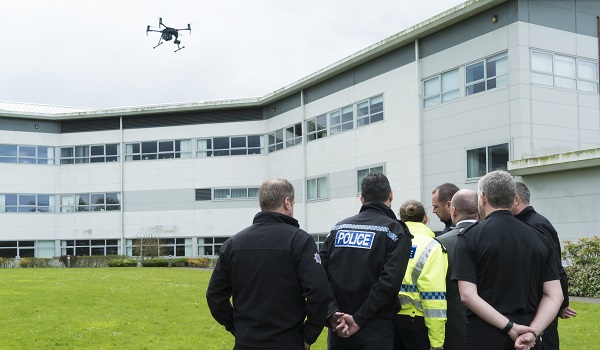How police can turn social media to their advantage
Peter Ship examines how social media can best be used in the fight against crime.

Recent events on both the national and international stage have highlighted the ability of massed groups of protesters and rioters to proactively use social media to coordinate their activities. This has put added pressure on both public security and law enforcement agencies to optimise the way they are using it.
Social media proved the driving force behind the Arab Spring and helped spark revolutions in a host of countries across the Middle East which are still ongoing today. Closer to home, during the riots that broke out across England in August 2011, it was used to comment on and coordinate activities.
Both events drove the creation of large volumes of unstructured data across social media networks. This, in turn, has highlighted the need for investigative agencies to deploy solutions capable of extracting insight and value from that data. The police, in particular, have increasingly woken up to the benefits of using social media and other forms of digital communications to help fight crime, rather than simply seeing them as tools used by criminals to organise and facilitate it.
In doing so, however, they have needed to be mindful of the diverse range of views that the public hold about the use of social media for public security purposes, from the fear of Big Brother that still grips many older people, through to a growing expectation from a more internet-savvy younger generation that the police should be using social media and the intelligence it can provide to proactively tackle crime.
Among Generation Y, there is an even an increasing willingness to report crime via social media rather than by telephone or face-to-face. A recent survey carried out by online polling firm YouGov for SAS found that 15 per cent of 18 to 24-year-olds said they would use a social media site to contact the police to witness a crime (as opposed to only one per cent of the 55-plus age group).
Finding a way forward
Today, growing numbers of law enforcement personnel are being deployed to monitor social media. Unfortunately, systems are often basic and it requires too much police time and too many resources for the job to be done effectively. Consequently, agencies often fail to capitalise on the intelligence the approach could provide.
So, what is the solution? Technology often has a critical role to play here and high-quality analytics can be particularly key. Text analytics technologies can now sift through vast volumes of information generated in social media to reveal patterns and zoom in on content to analyse. Social media analytics can provide ongoing analysis of online data to highlight important topics and content categories and build links to understand certain networks of individuals.
The key in all this, of course, is to identify potentially relevant information from the mass of background noise, thereby ensuring that investigators are not swamped by wholly irrelevant information and can instead focus on what is most likely to be important.
In addition, sentiment analytics can assess and monitor the sentiment of text to flag changing attitudes that may signal a shift from words to action. Allowing the technology to do the monitoring frees resources to intervene when an increased threat is identified. This type of capability will enable the professionals to identify the noise within social media and focus on the data that could provide valuable intelligence. In particular, the use of sentiment analytics combined with advanced risk-modelling techniques enables those individuals that pose the greatest potential threat to be identified, and action taken.
Doing all of this in a timely manner is also critical. Rapid processing and analysis of large volumes of information and dissemination of intelligence ensures that intelligence is made available fast enough for effective action to be taken, helping to combat security threats. This could potentially be a key benefit to investigative agencies and other crime-fighting force



